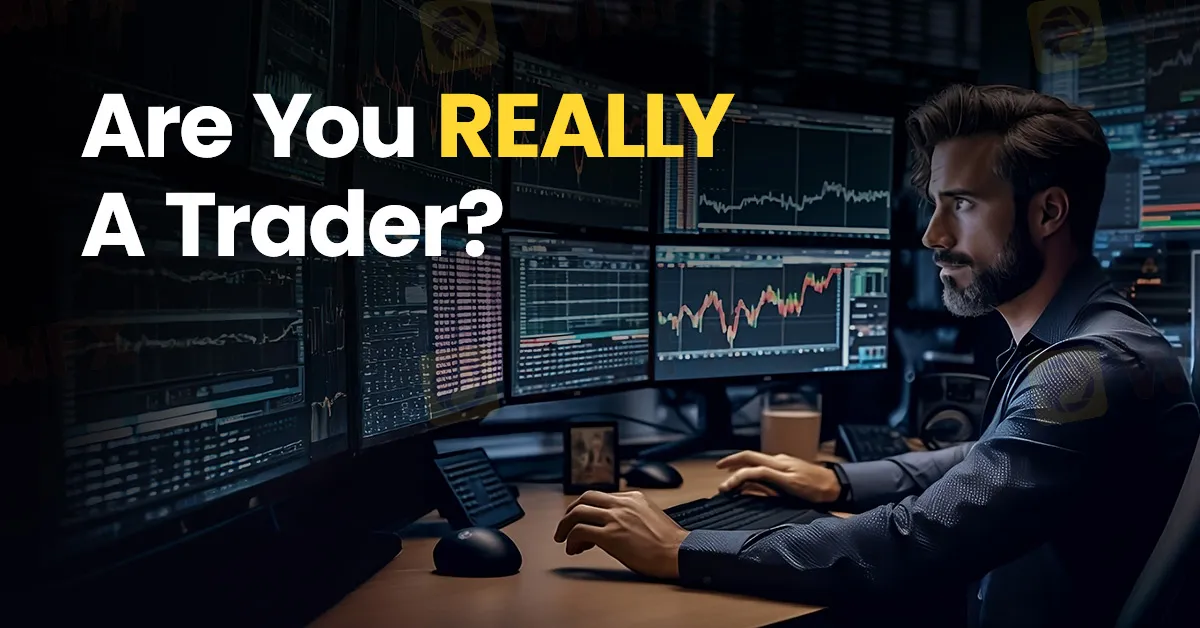简体中文
繁體中文
English
Pусский
日本語
ภาษาไทย
Tiếng Việt
Bahasa Indonesia
Español
हिन्दी
Filippiiniläinen
Français
Deutsch
Português
Türkçe
한국어
العربية
Are You REALLY a Trader?
Abstract:In the fast-paced world of forex and cryptocurrency trading, the allure of quick profits and the thrill of the market can often blur the lines between serious traders and those chasing an adrenaline rush. But, are you REALLY a trader?

In the fast-paced world of forex and cryptocurrency trading, the allure of quick profits and the thrill of the market can often blur the lines between serious traders and those chasing an adrenaline rush. But, are you REALLY a trader? This question delves into the core of your motivations and your approach to trading. Are you in it for the excitement, or are you treating it as a serious business venture with a well-thought-out risk management plan?

Many individuals are drawn to trading because of the adrenaline rush it offers. The market's volatility provides a constant stream of stimuli that can become addictive. The rapid price movements, the possibility of significant gains, and the fear of missing out (FOMO) can all contribute to a sense of excitement that is hard to resist.
However, this approach often leads to decisions driven by fear and greed rather than rational analysis. Emotional trading is a common pitfall. When you are swayed by your emotions, you may find yourself making impulsive trades without a solid strategy, over-leveraging in hopes of hitting a home run, or panic-selling at the first sign of a downturn. This behaviour is not sustainable and typically results in significant losses.

On the other hand, treating trading like a business involves a disciplined and strategic approach. Successful traders view their trading activities as a business operation, where every decision is made based on thorough analysis and a calculated risk management plan.
A well-defined trading plan is the cornerstone of serious trading. This plan should include your trading goals, risk tolerance, entry and exit strategies, and criteria for selecting trades. It acts as a roadmap, guiding you through the market's ups and downs with a clear strategy in place.
Risk management is critical in trading. This involves setting stop-loss orders to limit potential losses, diversifying your portfolio to spread risk, and not risking more than a small percentage of your capital on a single trade. Proper risk management ensures that you can withstand losses and stay in the game for the long haul.
The financial markets are constantly evolving, and staying informed is crucial. Serious traders invest time in continuous learning, keeping up with market news, studying new strategies, and analysing their past trades to improve. This commitment to education helps traders adapt to changing market conditions and refine their strategies over time.
Discipline and patience are virtues in trading. A serious trader sticks to their plan and does not deviate due to short-term market fluctuations or emotional impulses. They understand that trading is a marathon, not a sprint, and consistent, small gains are more sustainable than sporadic, large wins.

So, are you REALLY a trader? Take a moment to assess your motivations and your approach. Do you find yourself chasing the highs and lows of the market, driven by emotions? Or are you approaching trading with a clear plan, calculated risk management, and a commitment to continuous improvement?
If you identify more with the former, it may be time to reassess your strategy. Embracing a business-like approach to trading can help you achieve long-term success and mitigate the risks associated with emotional decision-making. Remember, the key to successful trading lies in discipline, strategy, and the relentless pursuit of knowledge.
In conclusion, being a trader is not just about participating in the market; it's about how you participate. Treat trading as a serious business, and you will be more likely to achieve sustainable success and navigate the market's challenges with confidence.

Disclaimer:
The views in this article only represent the author's personal views, and do not constitute investment advice on this platform. This platform does not guarantee the accuracy, completeness and timeliness of the information in the article, and will not be liable for any loss caused by the use of or reliance on the information in the article.
Read more

Italian Regulator Warns Against 5 Websites
The Italian regulator, CONSOB has issued a warning against five websites offering unauthorized financial services. This regulatory action aims to protect the public from fraudulent activities.

Trader Exposes Unethical Practices by STP Trading
A recent allegation against STP Trading has cast doubt on the firm's business practices, highlighting the potential risks faced by retail traders in an increasingly crowded and competitive market.

What Makes Cross-Border Payments Easier Than Ever?
Cross-border payments are now faster, cheaper, and simpler! Explore fintech, blockchain, and smart solutions to overcome costs, delays, and global payment hurdles.

Coinbase Under Scrutiny Amid Wrapped Bitcoin Delisting Controversy
Coinbase has come under fire after announcing its decision to delist Wrapped Bitcoin (wBTC), a move critics claim could be driven by competitive interests. The delisting, set to take effect on 19 December, has sparked allegations of market manipulation and concerns about fairness in the cryptocurrency ecosystem.
WikiFX Broker
Latest News
What Makes Cross-Border Payments Easier Than Ever?
Trader Exposes Unethical Practices by STP Trading
Italian Regulator Warns Against 5 Websites
Currency Calculator


